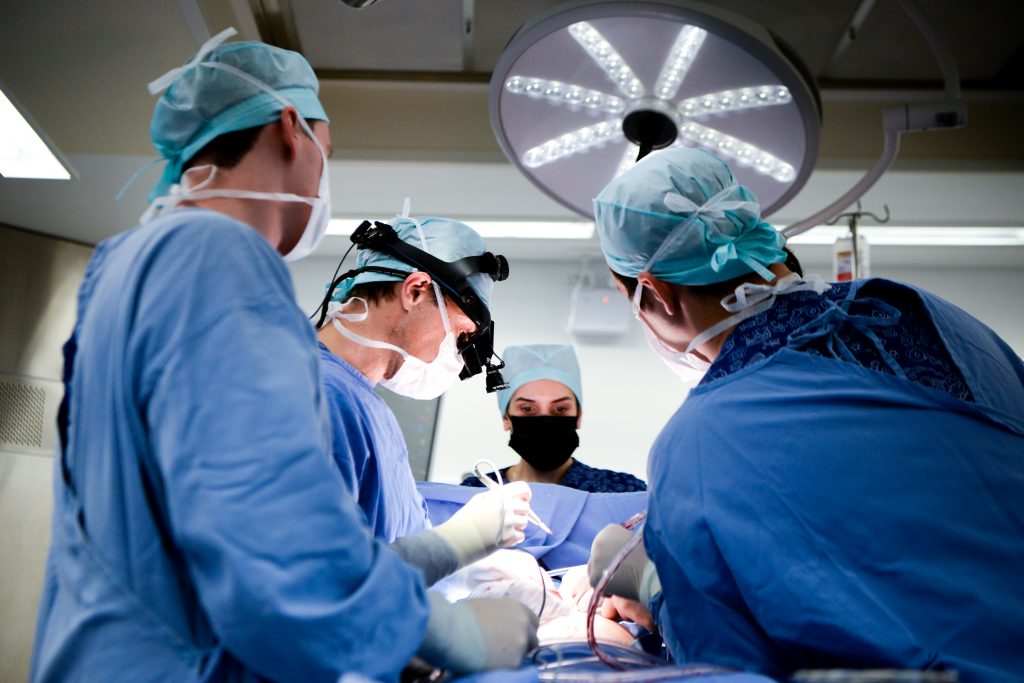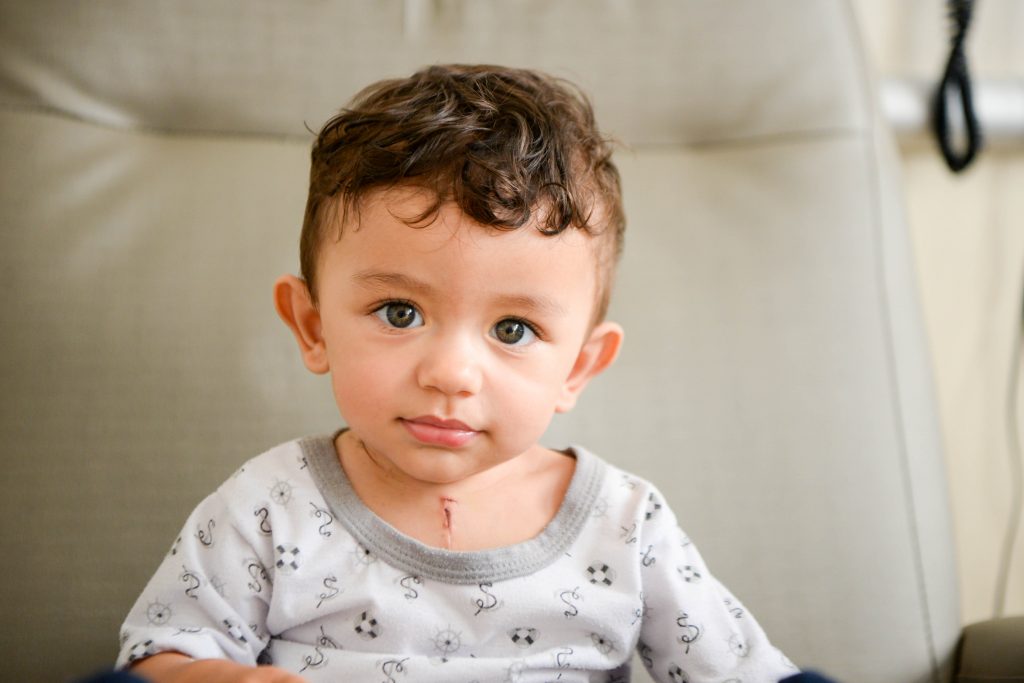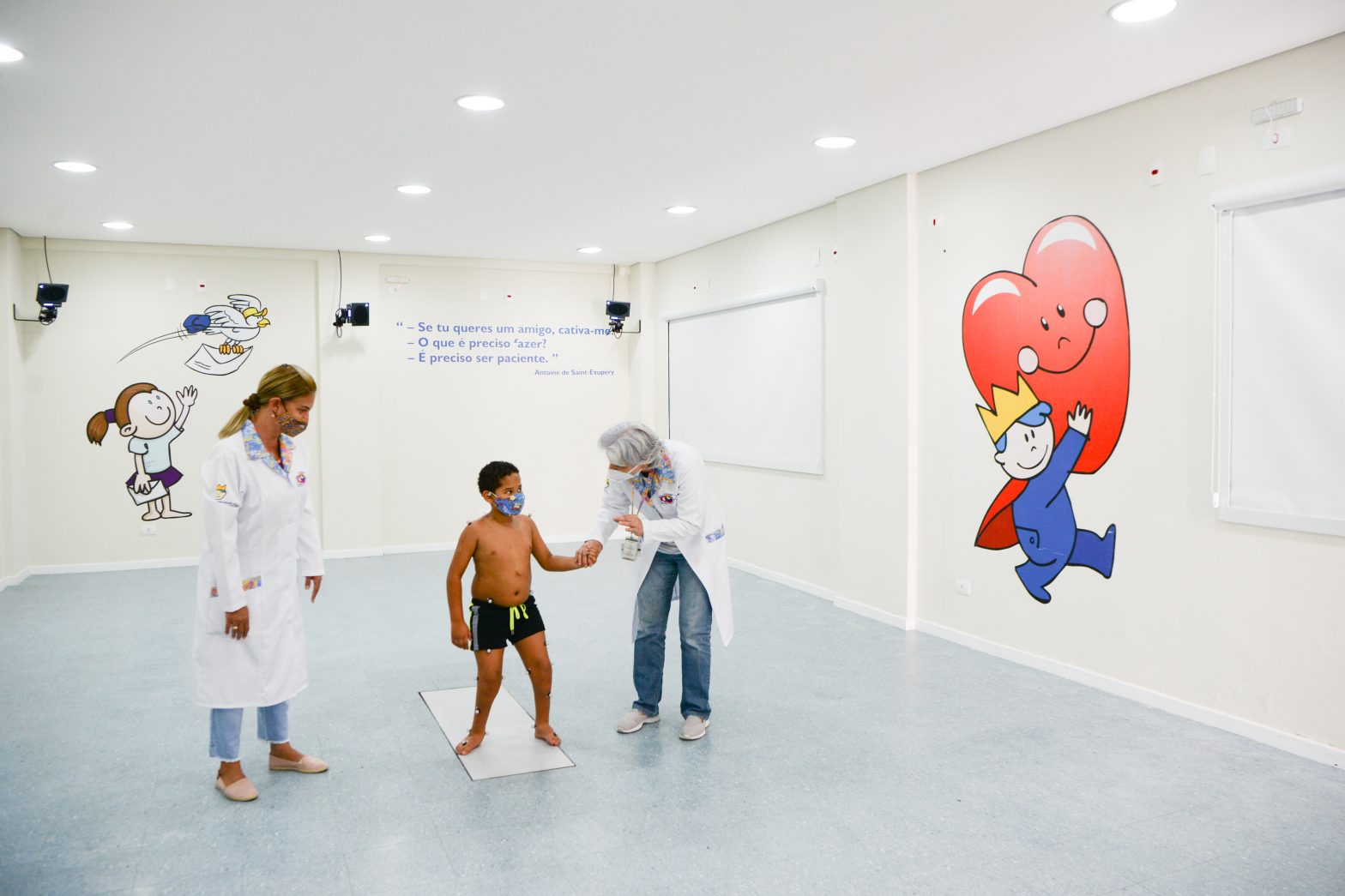Children also need heart transplants
According to the Ministry of Health, 67 children and adolescents up to 17 years of age are waiting for a heart in Brazil; Pequeno Príncipe has five patients waiting for a transplant
On August 20th, Brazilian television broadcaster Fausto Silva joined the waiting list for a heart transplant. Although the procedure is more common in adults, in Brazil, 67 children and adolescents up to 17 years of age are waiting for a heart to continue living. The number represents 17% of all Brazilian patients waiting for this organ. The data, updated until August 16, are from the National Transplant System, from the Brazilian Ministry of Health.
Pequeno Príncipe, the largest exclusively pediatric hospital in Brazil, currently has five children on the waiting list for heart transplants and two others are being evaluated to join the list. According to cardiologist Bruno Hideo Saiki Silva, clinical manager of the institution’s Cardiac Transplantation and Cardiomyopathies Service, the youngest child currently on the waiting list is 1 year and 10 months old, while the oldest teenager is 16 years old.

For young children, it is even more difficult to find a matching heart size. “Heart offers for patients weighing less than 30 kg are a great challenge,” states Silva. This is the case of the Pequeno Príncipe patient who has been waiting in line longer – since November 2022. When he was included in the waiting list, he was 1 year and 6 months old.
“In order to have compatibility between donor and recipient, it is a required a matching combination of weight and height. For example, the donor’s weight cannot be less than 20% or more than twice the weight of the patient on the waiting list,” explains the cardiovascular surgeon responsible for one of the teams at the Cardiac Surgery Service in Pequeno Príncipe, Fabio Binhara Navarro. This year, the institution has already performed four heart transplants.
Indication of heart transplantation in children
According to Navarro, children and adolescents can be born with malformations in the heart or develop diseases that affect the functioning of the structure of the organ over the years. In some cases, drug or surgical treatment (correction of anomalies) does not normalize function, so heart transplantation is indicated.
Patients who have end-stage heart failure, that is, when the heart does not pump enough blood to meet the body’s needs, need a transplant.
How is a pediatric heart transplant performed?
For the procedure to be performed, different professionals are needed, such as cardiovascular surgeons, cardiologists, anesthesiologists, intensivists, nurses, perfusionists, surgical technicians, psychologists, and social workers. At Pequeno Príncipe, the multi-professional team analyzes each case from the preoperative consultation, as well as assists in the selection of the organ that the child will receive and the surgical procedure, in addition to care after the heart transplant is completed.
The surgery, quite complex due to the young age of the patients, requires two teams. “While part of the professionals is deployed to remove the donor’s heart, another part prepares the recipient, simultaneously. All with the aim of reducing the ischemia time [time in which the heart’s blood flow is interrupted] of the transplanted heart, so that it is as short as possible, preferably less than four hours,” emphasizes the cardiovascular surgeon.
The breaking of the team, according to the medical doctor, is essential for a safe procedure, especially when the collection of the organ is carried out in other states, requiring air transport. During the procedure, a machine is used to perform the function of the heart and lungs (extracorporeal circulation machine) and maintain the blood circulation of the other organs. At that time, the diseased heart is removed, and the healthy organ is implanted.

Pequeno Príncipe is a reference in baby care
The Hospital is a reference in the care of children under 2 years old. This is the case of Miguel Gabriel da Silva Valoreski, who underwent a heart transplant shortly before his 1st birthday. He was diagnosed with fibroma, a tumor that grew inside the heart muscle, and only this type of procedure could normalize the functioning of the organ.
The boy’s transplant was a success. According to his mother, Beatriz Valoreski das Almas, one day after the surgery, he was extubated and discharged earlier than expected. “He spent more time in the intensive care unit [ICU] before surgery than after the procedure, which is complex. He recovered very quickly, it was a miracle,” she celebrates.
According to Navarro, after the transplant, the patient is continuously monitored and needs therapy for immunosuppression, with medication that acts on his immune system, preventing the inflammatory process that can lead to rejection of the organ. After hospital discharge, which varies from 15 to 30 days, the child or adolescent is followed up by the Cardiovascular Surgery and the Cardiology services of Pequeno Príncipe until they turn 18.
More
Pronon and Pronas are back
Through these programs, companies can allocate part of their Due Income Tax to finance projects focused on cancer care and people with disabilities
Research discovers new genetic mutations associated with a rare disease
The study also indicated the importance of early diagnosis for glycogenesis to prevent brain damage
Gala do Bem mobilizes society to support cancer care and research activities
The event will take place in Curitiba, on the 9th of October, bringing together haute cuisine and solidarity









